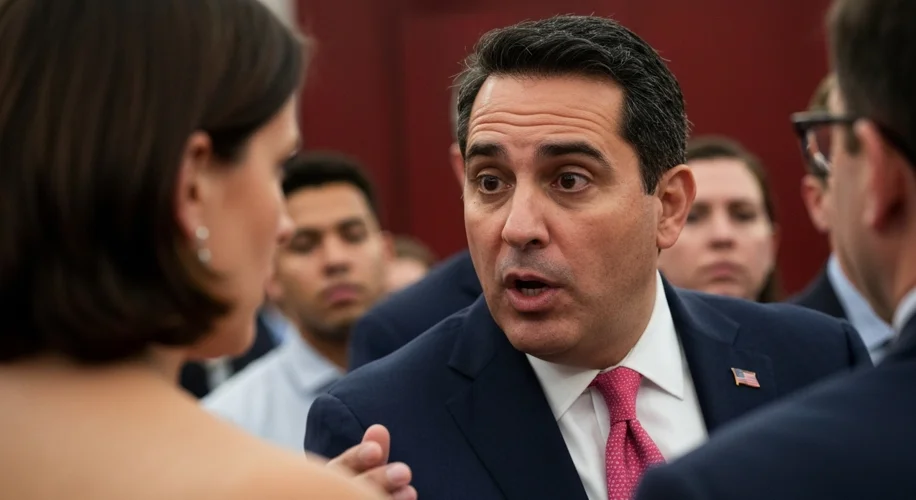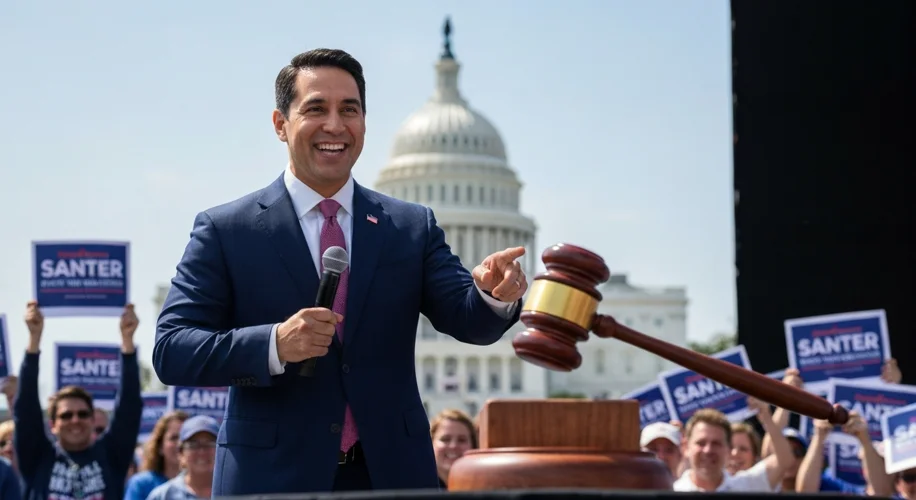In the annals of political history, figures who dazzle with charisma yet crumble under the weight of deception are not an uncommon sight. The story of George Santos, a former United States Representative from New York, is a contemporary echo of this enduring theme. While his recent expulsion from Congress and the subsequent legal entanglements are fresh in public memory, examining his career through the lens of historical political ethics reveals a pattern as old as democracy itself: the seduction of the electorate by fabricated narratives and the inevitable fallout when those narratives unravel.
Santos’s ascent to power was marked by a meteoric rise, fueled by a carefully constructed persona that painted him as a self-made success story. He claimed a distinguished background: a graduate of the Wharton School, a descendant of Holocaust survivors, a successful real estate mogul, and a champion of Jewish heritage. These were not mere talking points; they were foundational pillars upon which his campaign was built, designed to resonate with voters seeking relatable, accomplished leaders. The campaign trail, however, often functions as a stage where performance can overshadow substance, and Santos was a master performer. His claims were bold, his confidence unwavering, and his narrative compelling.

The trouble began not with a bang, but with a whisper. As Santos prepared to take his seat in the House of Representatives in early 2023, investigative journalists began to probe the edges of his carefully crafted biography. What they unearthed was a tapestry woven from half-truths and outright fabrications. The Wharton degree? Non-existent. The Holocaust survivor lineage? A distortion of his family history. His business dealings? Riddled with unanswered questions and accusations of fraud. His purported Jewish heritage? Unsubstantiated.
This revelation sent shockwaves through the political establishment and the public alike. It wasn’t just about embellishing a resume; it was about a fundamental betrayal of the trust voters place in their elected officials. In the historical context, this resonates with countless instances of political deception, from ancient Roman senators fabricating lineage to modern-day politicians caught in plagiarism or financial scandals. The common thread is the exploitation of public desire for leadership and the manipulation of identity to gain power.
Santos’s approach, however, was particularly audacious. He didn’t just slightly inflate his credentials; he invented entire chapters of his life. This level of deception, when exposed, not only undermines the individual politician but also erodes faith in the political process itself. It raises questions about the effectiveness of vetting processes, the role of media in uncovering truth, and the responsibility of voters in scrutinizing the information presented to them.
The consequences for Santos were swift and severe. Facing mounting pressure and a litany of ethical accusations, he was stripped of his committee assignments and, ultimately, expelled from the House of Representatives in December 2023. This expulsion was a rare and significant event, signaling the severity of his transgressions in the eyes of his colleagues. The legal battles that followed further exposed the depth of his alleged deceptions, leading to charges of wire fraud, money laundering, and theft of public funds.

The impact of the Santos saga extends far beyond his personal downfall. It serves as a stark reminder of the vulnerabilities within our democratic systems. In an era of rapid information dissemination and sophisticated disinformation campaigns, the line between genuine accomplishment and manufactured image can become blurred. Santos’s career highlights how easily a compelling narrative, however false, can gain traction if it taps into the right emotional chords and bypasses rigorous scrutiny.
Historians have long studied the dynamics of political trust and corruption. From ancient Greece, where citizens grappled with demagogues who swayed the masses with empty promises, to the Gilded Age in America, rife with scandals of bribery and influence peddling, the theme of elected officials betraying public trust is a recurring motif. Santos’s case, while unique in its specifics, fits within this broader historical trajectory of individuals who prioritize personal gain or ambition over integrity and transparency.
His expulsion, though a victory for accountability, also poses a challenge. How do we, as a society, fortify ourselves against such pervasive deception? The answer lies not only in stronger oversight and journalistic rigor but also in fostering a more discerning and engaged citizenry. It requires a collective commitment to seeking verifiable facts, questioning sensational claims, and valuing authenticity over manufactured spectacle.
In conclusion, George Santos’s brief but tumultuous tenure in Congress offers a valuable, albeit cautionary, tale. It underscores the timeless tension between image and reality in politics, and the profound consequences that arise when that tension leads to a systematic erosion of truth. His story is not merely a personal scandal; it is a chapter in the ongoing, often challenging, narrative of democratic governance and the enduring human struggle for accountability and trust.

